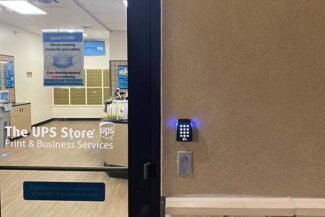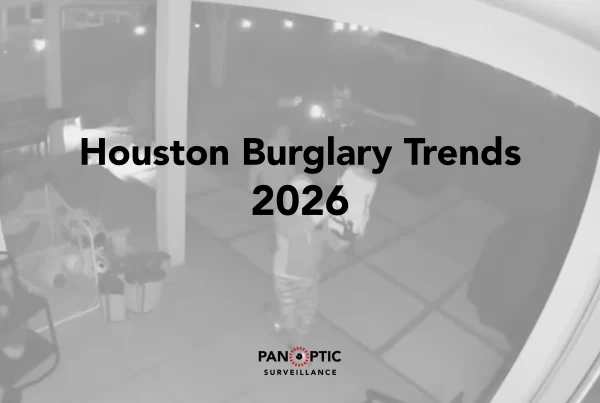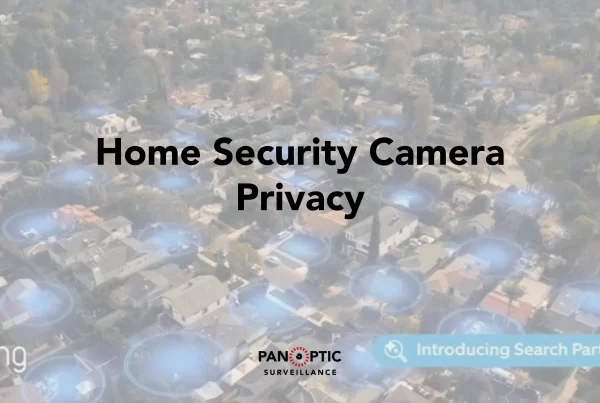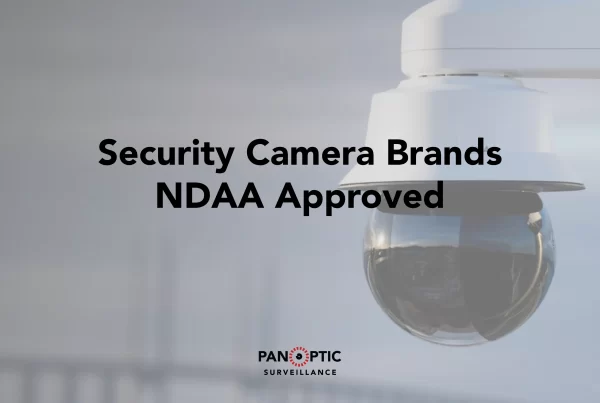How to Integrate Fire Alarms with Access Control
Learn about linking your fire safety procedures to your access control.
One of the most crucial components of a building’s physical security is its fire alarm system. These alarms, along with burglar alarms, are the ones that can actually save lives and should always be in full operation. Even though they are necessary, there is still potential for development in the conventional fire alarm paradigm.
The fire alarm is adjusting and evolving with contemporary IoT technologies, becoming increasingly useful not only in warning of fires but also in assisting you in a safe evacuation when one is discovered. We’ll go through the fundamentals of fire alarms for the workplace in this post, as well as one of the intriguing new features: integration with physical access control.
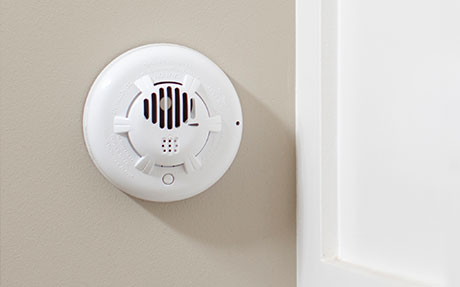
Commercial security cameras for business
- Business security cameras with enhanced coverage and IR that improve situational awareness
- Video analytics with AI to find incidents
- Hours of video are easily sorted through by Video Search to locate a suspicious person or vehicle.
- Integrates with third-party ONVIF® compliant platforms
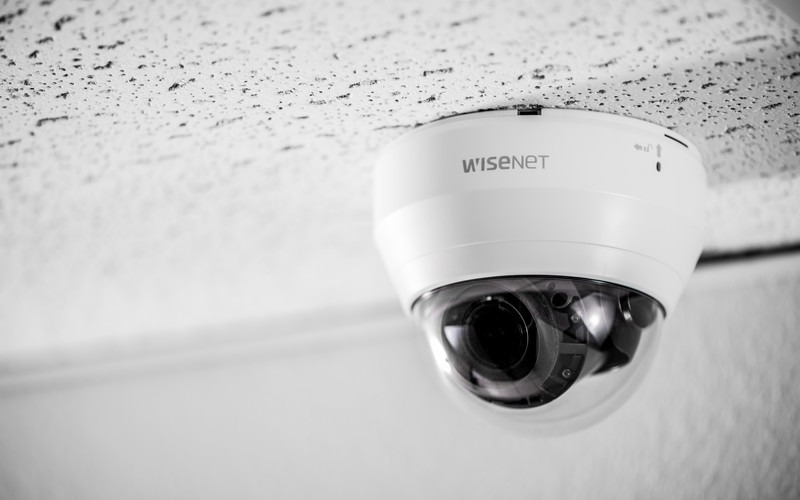
How do fire alarms for facilities work?
Although being widely used, fire alarms’ conventional design is not often obvious. How can you see a fire if you can’t really use a camera to see where it is? We’ll explore two basic approaches: temperature sensors as the first and smoke alarms as the second.
Cloud Based Access Control
Learn about cloud based access control system and its futures.
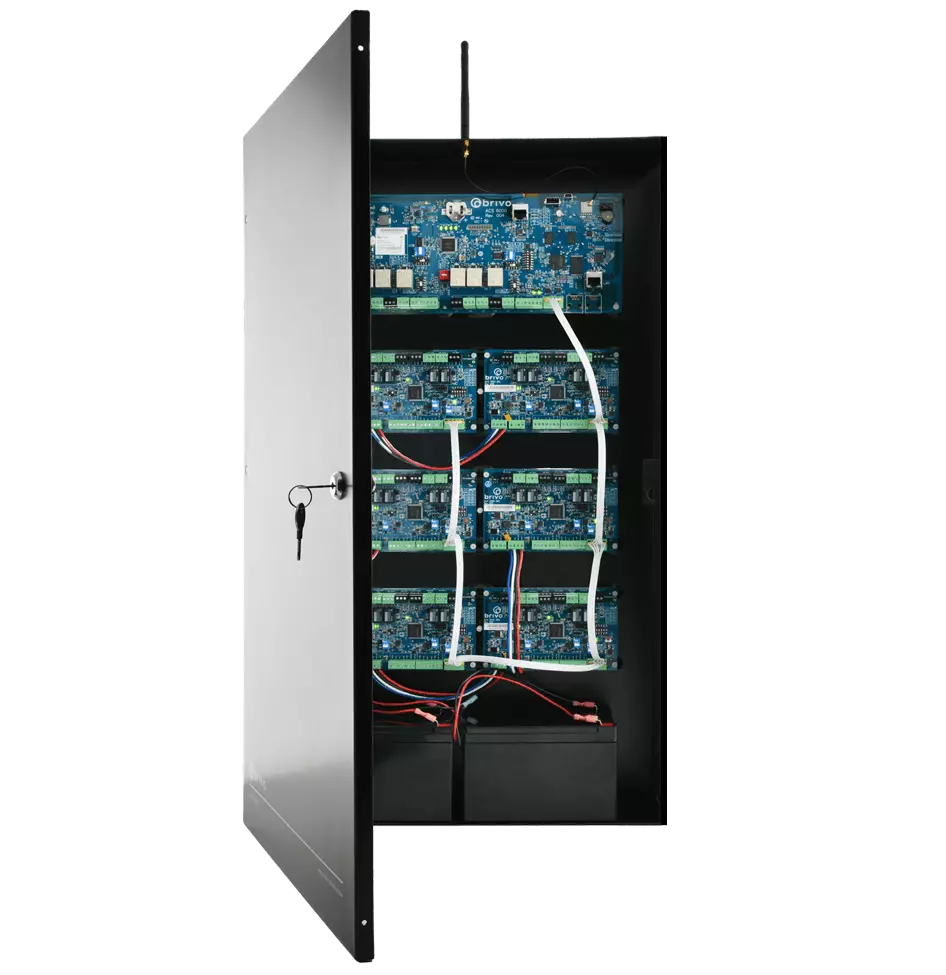
Temperature Sensors
A temperature sensor essentially does nothing more than measure the room’s temperature. Very easy! It may be installed in temperature-sensitive spaces, such as server rooms, and connected to smart home hubs or alarm panels to send alerts when a certain temperature is reached.
The problem with temperature sensors and flames is that frequently it’s too late and the fire is out of control by the time a fire is powerful enough for the temperature difference to be felt. Temperature sensors are thus not usually as trustworthy as fire alarms. Smoke alarms are really a more dependable way.
Smoke Alarms
Smoke alarms are by far the more dependable of the two types of sensors, and in actuality, you’ll see them on the majority of fire alarms.
Any minuscule quantity of smoke in the air is picked up by smoke detectors. This can be smoke that is visible, such as smoke from burning paper, or even the more harmful carbon monoxide invisible smoke that fires produce. As carbon monoxide is completely odorless and tasteless, breathing it in won’t necessarily make you cough.
When it gradually replaces the oxygen in your lungs, you start to feel drowsy. Eventually, it will totally block off the oxygen supply to your brain, causing you to fall asleep. Humans are particularly vulnerable to carbon monoxide poisoning because we cannot detect it until it is too late.
Fortunately, carbon monoxide can be detected by smoke detectors, and as it can only be created by fires, they will sound an alert if they find it. For fire safety, we highly advise putting smoke detectors at your office.
Fire Alarm Panels
The alarm signals must be routed through a specific alarm panel in addition to the alarms themselves. Unless it is tied up to the alarm panel, a smoke detector is often an isolated device with many wires and specialized detectors; it is not connected to your main alarm system.
The functioning of the panel is fairly simple, so here we’ll go through a few recommendations for the more popular and adaptable panels. Sensors are frequently attached to a panel, therefore they may be suggested for both!
– The Bosch Panel is the first item here. They are dependable, stylish, and a good choice thanks to an integrated IP solution and contemporary panels.
– Although Fire-Lite panels don’t come with sensors of their own, they are compatible with all the best sensors on the market and offer specialized and dependable alarm systems.
These are just three excellent solutions you may consider; there are many more available. Nevertheless, the building manager will usually activate the fire alarm in bigger office buildings, so you might not even need to select this choice.
What type of fire alarm do you need?
You must always have a fire alarm for safety reasons, but there are varied requirements depending on the state you are in, the kind and size of the structure, or the number of workers in your workplace. You may find a lot of information online to assist you in determining the type of fire alarm you’ll want.
Access Your Office with Smartphone
Discover why thousands of companies have Access Control System
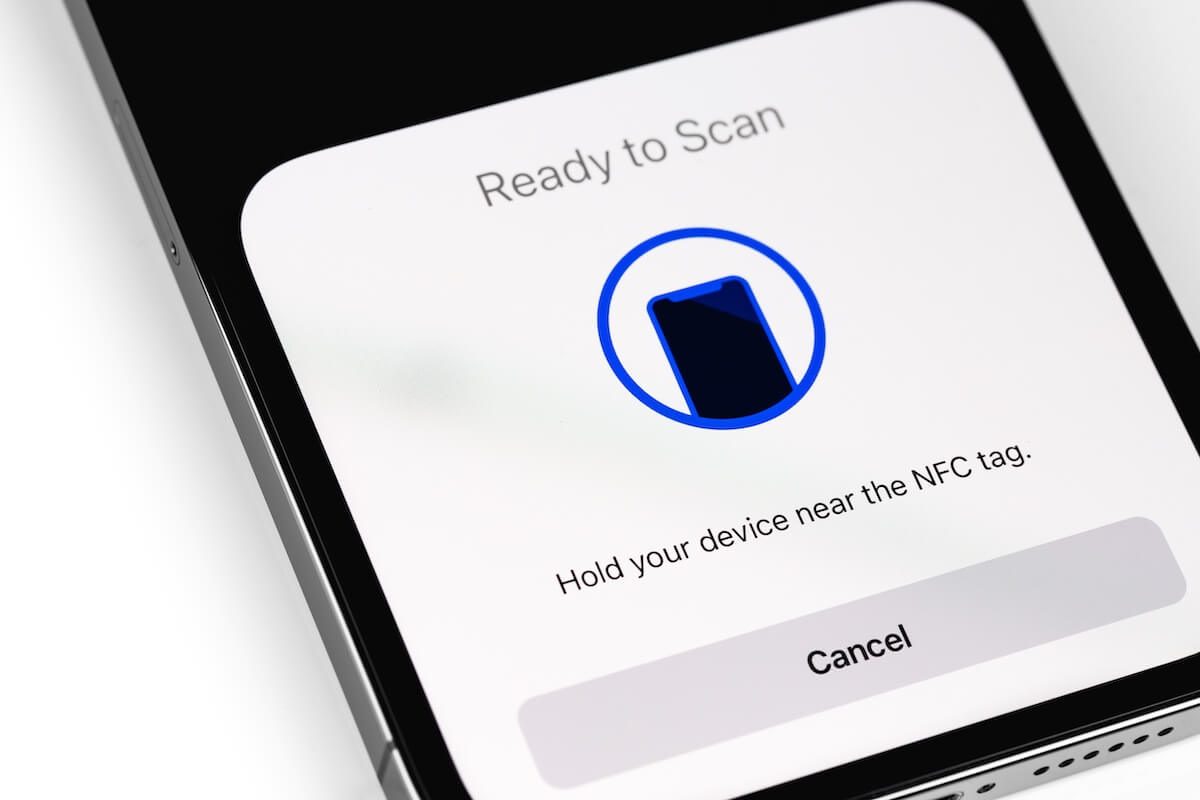
Fire Alarms and Access Control
The marriage between fire alarms and access control is a clear example of how different facets of physical security may be integrated. Make sure your doors are open if there is a fire in the building because you want people to have easy access to the exits.
How is the panel set up?
Check out this comprehensive document for more information on how access control panels and fire alarms work together! So in summary, the power supply for the lock is attached to the access controller. A backup power controller is installed for integration with fire alarms, and the backup power controller is then connected to both the fire alarm panel and the power source.
The backup controller receives a signal from the fire alarm when it is activated, and the backup controller then instructs the access controller to open all of the doors. That’s all there is to it, and it keeps the access controller’s costs low.
If your building has an integrated power system over which you have only limited control, it will give you a cable so that you may activate the fire relays from the access control panel. In order to connect your access control panel to the building fire panel, you, the renter, will get one. Just one more step, but what would life be like without pointless red tape?
What happens to the doors if a fire alarm is active?
In the last part, we said that when the fire alarm is triggered, the backup power controller would speak with the access controller. So what exactly occurs to your doors in the situation?
All the doors open automatically when a fire alarm is activated, as one might anticipate. In the case of a fire, protecting lives comes before genuine security. In the case of a fire in your building, it should go without saying that you should leave immediately rather than attempting to preserve your belongings. Naturally, you’ll want all the doors open to make this possible, and in these circumstances, that is exactly how it is designed to work.
Join UPS Stores Using Access Control
With Cloud Based Access Control, UPS Stores can regulate and track who enters its facility for PO Boxes.
